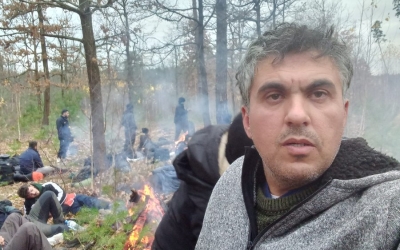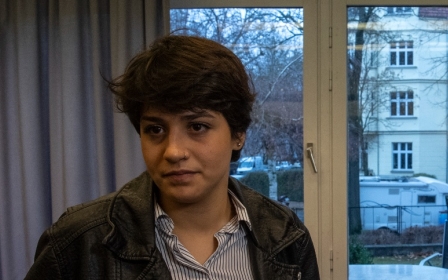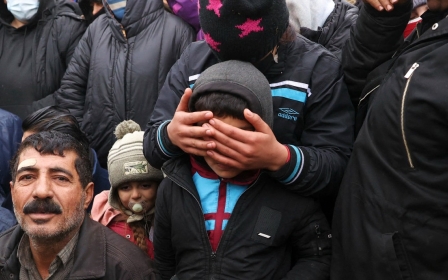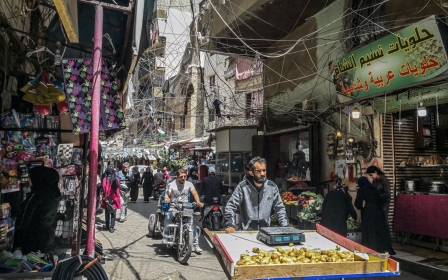Poland-Belarus: One-year-old Syrian boy latest to die on Europe's border
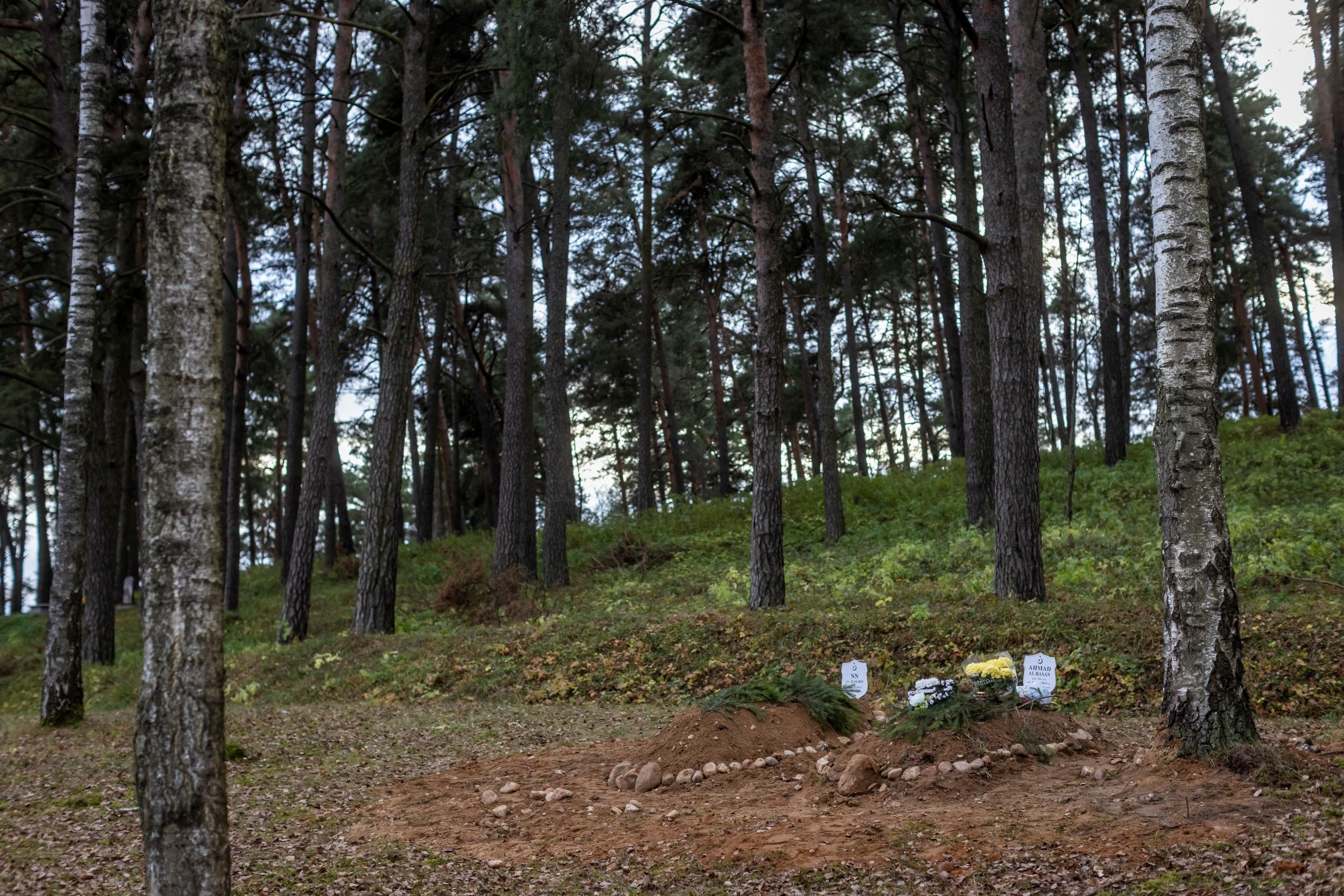
A one-year-old Syrian boy has become the latest death among migrants trapped on the Belarus-Poland border as the international community struggles to respond to what they see as a growing crisis.
A Polish NGO said the child was the son of a Syrian couple who it had been assisting in the early hours of Thursday. The cause of death has yet to be established.
"Around 2:26 am we received a report that at least one person needed medical assistance," the Polish emergency medical team PCPM said on Twitter.
"When we arrived on the spot, it turned out that three people were injured. They had been in the forest for 1.5 months."
The NGO said the man was suffering from a lacerated wound to his arm, while the woman had a stab wound to her lower leg.
"Their one-year-old child died in the forest," they wrote.
An estimated 4,000 refugees and migrants, mostly Iraqi Kurds but also citizens of other Middle Eastern countries, have been stuck on the Belarus-Poland border for weeks attempting to cross into Europe.
At least 11 refugees had already died as a result of the poor conditions and freezing temperatures at the border.
The ongoing situation has sparked off a furious row between the European Union and the government of Belarusian President Alexander Lukashenko.
The former accuses the latter of having orchestrated an influx of migrants in response to the sanctions imposed on the Belarus administration over his repression of demonstrators in 2020.
On Friday, Poland accused Belarus of trucking hundreds of people back to the border and pushing them to attempt to cross illegally, despite having cleared migrant camps only hours earlier.
Ukraine has also warned the migrants in Belarus not to cross onto its territory, saying they would be pushed back by any means necessary.
"In the event of threats to the life and health of border guards and law enforcement officers, we will use all the means of protection provided by law, including firearms," said Interior Minister Denys Monastyrsky on Friday.
Iraqis repatriated
Hundreds of refugees from Iraq, mostly Kurds, boarded a repatriation flight on Thursday organised by Baghdad.
According to Ari Jalal, head of the Summit Foundation for Refugees and Displaced Affairs in Iraq's Kurdish region, 432 people were on the Thursday plane which touched down first in Erbil in Iraq's autonomous Kurdish region and then flew on to the capital, Baghdad.
Kurds have been heavily represented among the Belarus migrants as living conditions have deteriorated in the autonomous Kurdistan Regional Government (KRG) area of northern Iraq.
'[The KRG] should work closely with humanitarian organisations to guarantee a good life and job opportunities to the returnees. This will [encourage] other emigrants to return too'
- Ari Jalal, Summit Foundation for Refugees and Displaced Affairs
A number of travel agencies in Iraqi Kurdistan had reportedly been offering package deals to Minsk, from where Iraqis can expect to pay thousands of pounds to people smugglers to help them enter Europe.
In a tweet on Sunday, KRG Prime Minister Masrour Barzani said that his people had been "deceived by traffickers" and "exploited by networks abroad" and that he was working to ensure the welfare of Kurdish citizens.
Jalal told Middle East Eye that the KRG had been wracked with "political and economic instability" for seven years and, combined with increasing limits on freedom of expression, this was driving Iraqi Kurds to attempt to enter Europe.
"The KRG should first try to decrease the emigration rate by offering good services, stability, job opportunities, freedom of expression, freedom of market, etc," he said.
"Then, they should work closely with humanitarian organisations to guarantee a good life and job opportunities to the returnees. This will [encourage] other emigrants to return too."
Middle East Eye propose une couverture et une analyse indépendantes et incomparables du Moyen-Orient, de l’Afrique du Nord et d’autres régions du monde. Pour en savoir plus sur la reprise de ce contenu et les frais qui s’appliquent, veuillez remplir ce formulaire [en anglais]. Pour en savoir plus sur MEE, cliquez ici [en anglais].


